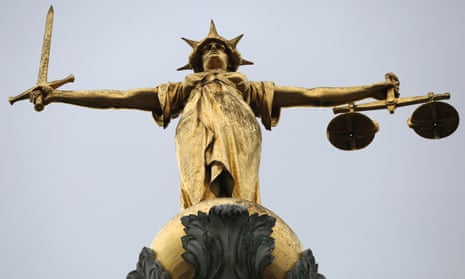Ann Coffey MP is the latest to suggest that “rape myths” that play down the seriousness of sexual violence are leading jurors to acquit too many defendants, and suggested that rape trials should thus be decided without them. Clearly there is a problem of sexual violence. There is, however, no evidence to suggest that dismantling defendants’ right to a jury trial would improve matters, and doing so could cause serious harm.
The easier it becomes to convict, the greater the risk of miscarriages of justice. A 2013 CPS report found that in 17 months there were 38 prosecutions for making false allegations of rape. This will underestimate the problem, as the CPS does not always prosecute in such cases. In the past year, “unsuccessful prosecutions” have included the cases of Liam Allan and Isaac Itiary who were acquitted when exculpatory material came to light.
The new director of public prosecutions, Max Hill, has explained the drop in prosecutions as part of an attempt to improve the quality of cases pursued – there is no evidence that juries are wrongly deciding cases. More research in this area would be helpful. A groundbreaking survey into juror attitudes by Professor Cheryl Thomas in 2010 found that juries have a 55% conviction rate in rape trials – a higher rate than in cases of attempted murder or grievous bodily harm.
In making her argument, Coffey obtained data that shows that rape conviction rates are lowest for younger men; 32% of men aged between 18 and 24, compared with 46% of men aged between 25 and 59. She attributed this, without evidence, to “reluctance on the part of juries to find young men guilty of date rape”. Yet the difference may be due to a greater proportion of acquaintance rapes, with both parties being intoxicated and unclear in their recollections, making it harder for the jury to be certain of guilt. Rape is defined as when person A intentionally penetrates the vagina, anus or mouth of person B with his penis, B does not consent to the penetration, and A does not reasonably believe that B consents. Cases that turn on the defendant’s belief in consent or, in cases relating to non-recent allegations, whether sexual intercourse took place at all, are very difficult to prove. If a jury is not “satisfied so you are sure” of a defendant’s guilt, then it must acquit.
Nothing suggests that other decision-making panels are more likely to be immune from prejudice. A single judge or panel of experts may become case-hardened. In a criminal justice system driven increasingly by statistics, there is a danger that judges would feel under pressure to “improve” their conviction rates, and defendants may not feel that they received a fair trial. Attempts to remove the right in complex fraud cases were never introduced and the jury-less “Diplock” courts in Northern Ireland were viewed with suspicion.
The danger, as with so many well-intentioned measures to “improve” conviction rates is that once jury trials have been removed for rape cases they will be vulnerable in all cases – particularly as a single judge could deal with cases far more quickly (and therefore cheaply) than juries.
Abolishing jury trials would not be a panacea – greater gains could be achieved by reversing the savage cuts that have tested the criminal justice system to breaking point. This would mean that the police could gather evidence promptly, prosecutors would have the resources to ensure that only strong cases were taken forward, and timely disclosure of relevant unused material would be made to the defence. The courts could ensure that trials are listed within a reasonable time and go ahead without repeated adjournments which are distressing for all parties involved. Defendants also need properly funded legal representatives who can test the case against them and, where appropriate, advise a guilty plea.
The greatest gains are to be made in enabling victims to recognise what has happened to them as rape (rape myths apply to victims too) and giving them the confidence to report what has happened. Misleading campaigns such as Coffey’s, however well intentioned, reinforce the erroneous, damaging myths that the criminal justice system is pitted against complainants and that all acquittals are wrongful.
